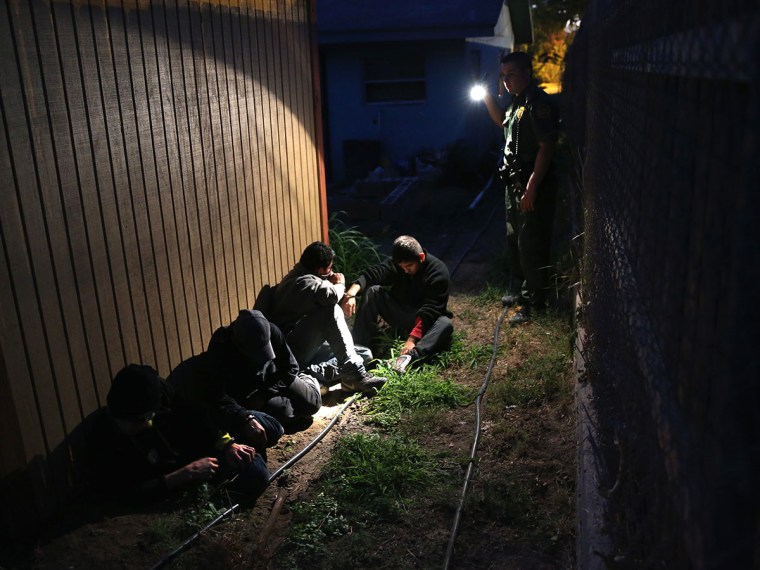Illegal immigration plummeted after the recession as the lousy economy cut off opportunities for work. But that may be changing, according to a new study by the Pew Research Center published Monday.
Pew, whose annual report is the most widely cited estimate of the nation's overall immigrant population, estimates that 11.7 million unauthorized immigrants were living in America as of March 2012. That's a slight uptick from last year's estimate of 11.5 million, but it's not clear whether the number of unauthorized immigrants actually increased. The range on the latest estimate is between 11.1 million and 12.2 million people.
But Pew says the latest numbers do support the notion that levels of illegal immigration are stabilizing after dropping off in recent years. Their estimate of unauthorized immigrants in America rose dramatically from about 3.5 million in 1990 to a peak of 12.2 million in 2007. But it abruptly shifted the other direction after the financial collapse, dropping to 11.7 million in 2008, 11.3 million in 2009, 11.4 million in 2010, and 11.5 million in 2011.
Most unauthorized immigrants—52%—are Mexican nationals. But their share of the undocumented population has declined since 2007, when they made up 57% of Pew's estimate. Increased security at the border may explain some of the drop off, but there's also evidence of a dramatic exodus of Mexican immigrants in recent years. According to the Pew study's authors, the available research "suggests that the return flow of unauthorized Mexican immigrants for 2007-2009 was significantly larger than the flow from Mexico into the U.S."
Congress is currently debating immigration reform, which could include a path to legal status and eventual citizenship for undocumented immigrants who pay fines, follow the law, and learn English. Any legislative package is also expected to include a new guest worker program to bring in workers from abroad for jobs employers claim Americans are reluctant to perform as well as new requirements that businesses check the legal status of their workers. Proponents say this would both reduce the financial incentive for migrant laborers to enter the country illegally and for businesses to hire workers who lack legal status.
